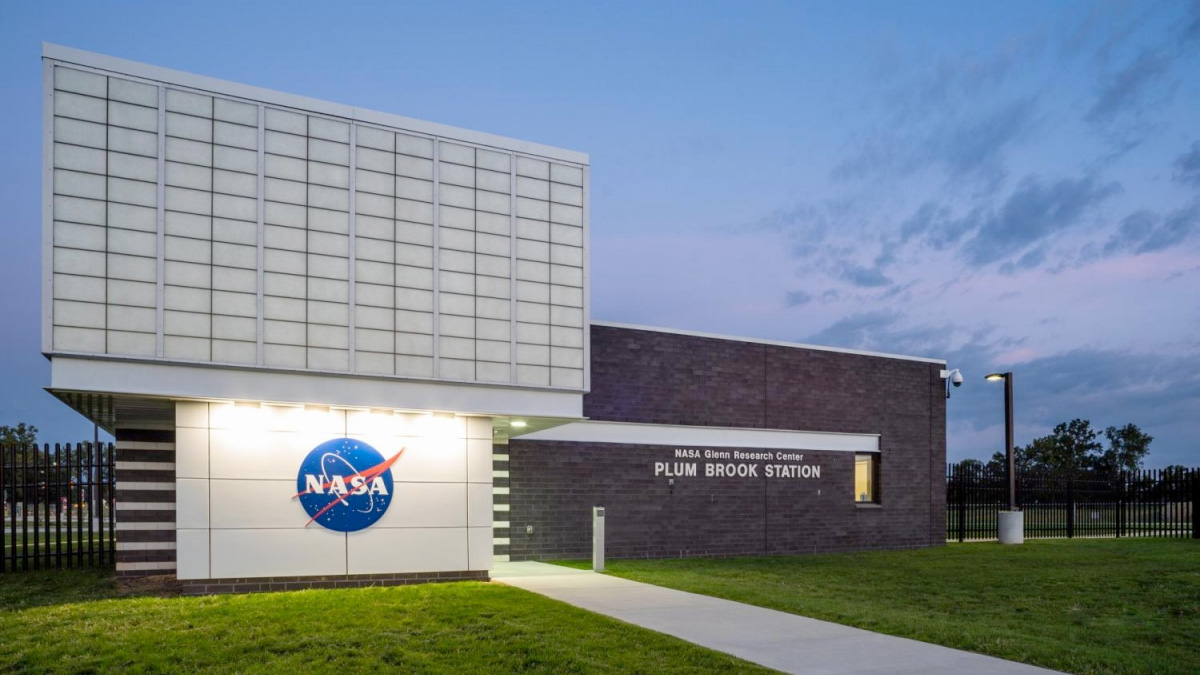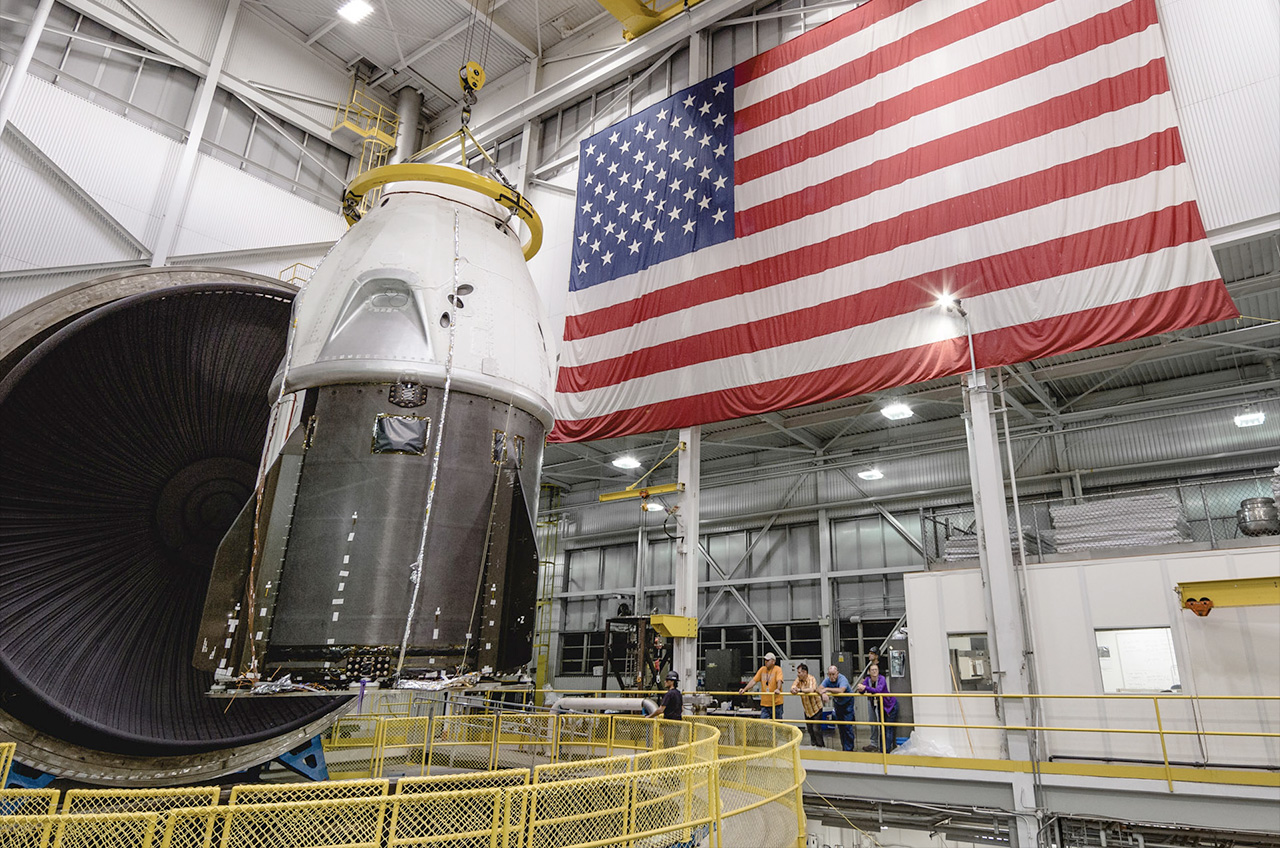NASA Plum Brook test facility renamed for astronaut Neil Armstrong

A remote Ohio facility used to test NASA's new moon-bound spacecraft has been renamed for the first astronaut to step foot on the lunar surface.
NASA's Plum Brook Station in Sandusky, Ohio, which in March completed a three-month test campaign in support of the agency's Artemis I Orion crew capsule, has been redesignated the Neil A. Armstrong Test Facility. The legislation directing the change was signed into law on Wednesday (Dec. 30).
"Before Neil Armstrong became the first person to step foot on the moon, he was an up-and-coming test pilot in northeast Ohio at what is now known as the NASA John H. Glenn Research Center. I'm pleased to join Senator Rob Portman [R-OH] in honoring Ohio-native Neil Armstrong by renaming NASA Glenn's Plum Brook Station in Sandusky for a man who inspires future Ohioans to continue our state's tradition of breaking barriers in space," said Senator Sherrod Brown (D-OH), who with Brown introduced the bill, which was passed by the U.S. Senate in June.
Related: Apollo 11: First men on the moon

The House of Representatives approved the name change on Dec. 16.
"Neil was a humble and patriotic Ohioan who believed the honor of serving his country was a reward in and of itself. That's why, when I asked him the year before he passed away [in 2012] whether he wanted me to pursue naming Plum Brook after him, he demurred," Portman said in a statement when the legislation cleared the Senate. "But he was a strong supporter of Plum Brook Station and the important simulations and testing being done there, and I believe it is precisely because of his humility, coupled with his unparalleled accomplishments, that the renaming is appropriate."
"This is a fitting tribute to Armstrong's amazing accomplishments in air and in space, and I'm proud my colleagues unanimously supported this legislation," said Portman.
Breaking space news, the latest updates on rocket launches, skywatching events and more!
Plum Brook Station inherited its name from a World War II ordnance facility that was built near a stream called "Plum Brook." The station's space environment simulation facilities include the world's most powerful spacecraft acoustic test chamber and the only platform capable of supporting full-size upper-stage rockets and engines at high-altitude conditions.
Earlier this year, NASA used the equipment at Plum Brook to subject the Artemis I Orion crew capsule to the extreme temperatures and electromagnetic environment it will experience on its upcoming test mission to the moon. The uncrewed flight, which is planned for launch in late 2021, will confirm that the spacecraft is ready to begin carrying astronauts on missions to orbit and land on the moon — following in the 50-year-old footsteps of Armstrong and his fellow Apollo-era moonwalkers.
Plum Brook's In-Space Propulsion Facility was also used to test SpaceX's Crew Dragon spacecraft before its first launch to the International Space Station in 2019 and the site's Space Power Facility briefly served as a research center for Nick Fury (Samuel Jackson), Hawkeye (Jeremy Renner) and Loki (Tom Hiddleston) as a set used in the 2012 Marvel Studios' movie "The Avengers."

As directed by the newly-enacted legislation, the formal name of the Plum Brook Station will be the NASA John H. Glenn Research Center at the Neil A. Armstrong Test Facility.
With the renaming, NASA now has two locations named for Armstrong. In a similar act by Congress in 2014, the agency's Dryden Flight Research Center at Edwards Air Force Base in southern California was renamed the Neil A. Armstrong Flight Research Center.
NASA also honored Armstrong by adding his name to its operations and checkout building at Kennedy Space Center in Florida.
Armstrong was not the first person to have multiple NASA sites named for him. Goddard Space Flight Center in Greenbelt, Maryland and the Goddard Institute for Space Studies in New York City are both named for Robert H. Goddard, who is credited with creating and building the world's first liquid-fueled rocket.
Follow collectSPACE.com on Facebook and on Twitter at @collectSPACE. Copyright 2020 collectSPACE.com. All rights reserved.

Robert Pearlman is a space historian, journalist and the founder and editor of collectSPACE.com, a daily news publication and community devoted to space history with a particular focus on how and where space exploration intersects with pop culture. Pearlman is also a contributing writer for Space.com and co-author of "Space Stations: The Art, Science, and Reality of Working in Space” published by Smithsonian Books in 2018.
In 2009, he was inducted into the U.S. Space Camp Hall of Fame in Huntsville, Alabama. In 2021, he was honored by the American Astronautical Society with the Ordway Award for Sustained Excellence in Spaceflight History. In 2023, the National Space Club Florida Committee recognized Pearlman with the Kolcum News and Communications Award for excellence in telling the space story along the Space Coast and throughout the world.

